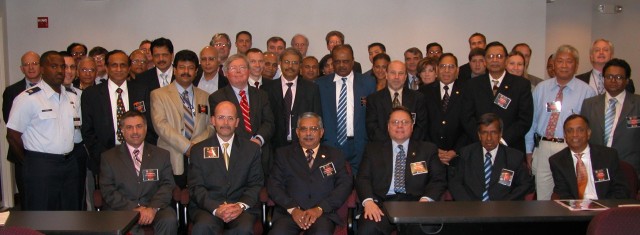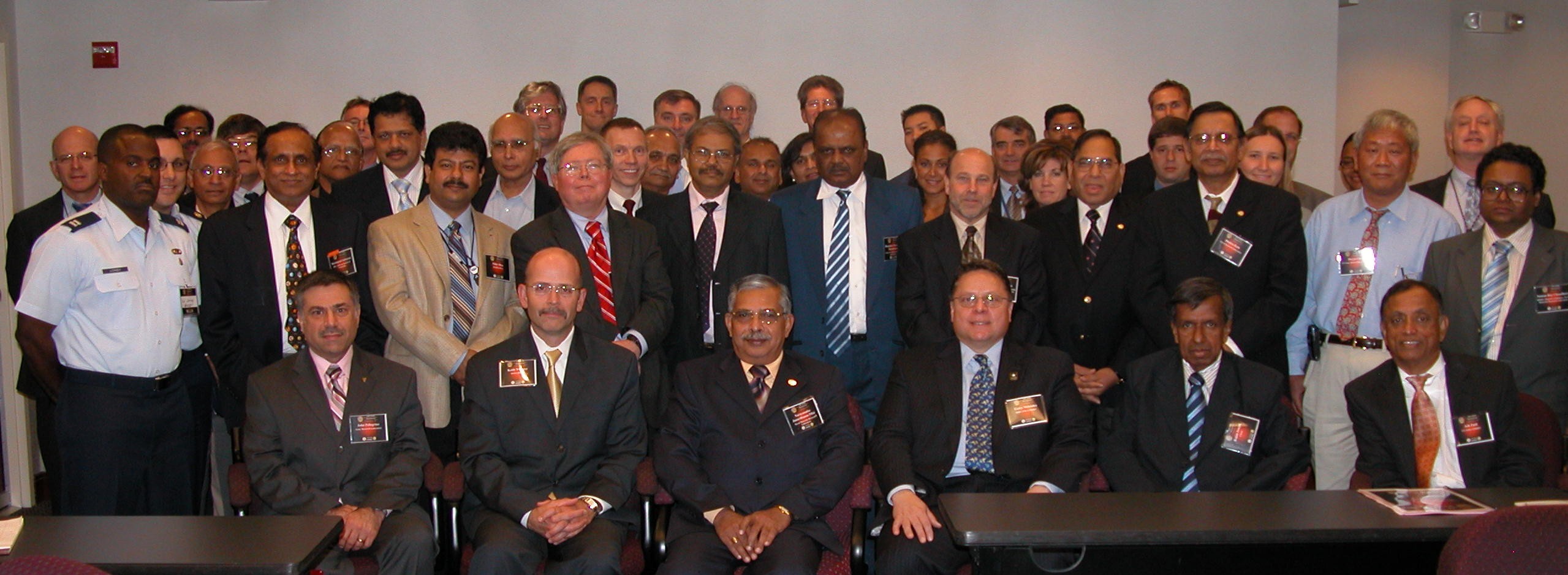
Scientists, engineers and professors from the United States and India gathered to solve critical power and energy challenges facing both nations at the first U.S.-Indo Bilateral Power and Energy Workshop in Arlington, Va. Sept. 29 - Oct. 1.
Hosted by the Command and Control Directorate of the U.S. Army Research, Development and Engineering Command, Communications-Electronics Research, Development, Engineering Center, the three-day workshop provided a forum to identify collaborative research and development opportunities regarding power sources, power storage, cogeneration, and power management equipment and systems.
As their demand for power and energy continues to increase, both countries are seeking to enhance their power and energy capabilities and are, in some cases, investigating different solutions to similar challenges, such as fuel cells, said Dr. Gerardo Melendez, director of CERDEC C2D.
"Ultimately, we are seeking leverage opportunities to meet the needs of the Warfighter more effectively and efficiently than what we could accomplish working just within the Army," said Melendez. "Both countries possess the technical wherewithal and have allocated resources to research and develop power and energy capabilities. So we have a convergence of factors that point towards a successful bilateral collaboration."
Participants included representatives from government and academic organizations such as the U.S. Department of Defense, the U.S. Department of Energy, the Defense Advanced Research Projects Agency, the India Defence Research and Development Organization, the India Institute of Technology, and the U.S. Army, Air Force and Navy.
International cooperation and interoperability are essential to winning the Global War on Terror, said Alfred Volkman, director for the International Cooperation Office of the Under Secretary of Defense for Acquisition, Technology and Logistics.
"The US and India are two great democracies who face very similar challenges in maintaining national security in a hostile world - and to do so with increasingly scarce resources. One of the ways we meet this challenge is through R&D cooperation," Volkman said. "Power and Energy is important to the security of both our nations, so it is especially important that we work together to enhance our power and energy capabilities for our militaries today and in the future."
Attendees participated in an overview of U.S. and India power and energy imperatives, panel discussions, and technical and poster sessions on fuel cells, alternate energy sources and energy technology initiatives. Workshop participants identified fuel cell technology, collaborative testing of Soldier power systems, hybrid supercapacitors and portable solar photovoltaics as potential areas for future collaboration and project agreements.
Project leads and organizational points of contact were chosen to further develop these technical areas and identify mutual project objectives and goals. R&D efforts will be identified within the next two months through white paper submissions from both countries on possible project agreements. The selected papers will be briefed at the next meeting, which is scheduled to be held in New Delhi, Jan. 27-29, 2010.
"This was an excellent workshop; there was a lot of hard work put into preparing it. The sessions were highly productive, and I was impressed by the level of representation and professionalism. The speed of the actions and approvals demonstrated the seriousness of those involved. I must say that I look forward to the positive things that will result from this initiative," said Dr. J.P. Narayanadas, director of the Naval Materials Research Laboratory, India.
The workshop is likely to lead to continued and expanded interaction with India's premier power and energy researchers, said Dr. Richard T. Fingers, chief of the Air Force Research Laboratory's Energy Power Thermal division.
"We recognize important cutting edge research and development is being conducted by researchers in India, and this workshop provided an ideal opportunity to get a more in-depth look at some of that research," Fingers said. "Based on the technical areas identified for follow-on interactions, I am optimistic about, and look forward to, strengthening U.S.-Indo relationship in the area of power and energy."
Although this was the first workshop specifically for the two countries, a multi-national workshop was held in New Delhi, India during March 2007, which identified key power and energy research being conducted by Indian universities. This led to the signing of an Information Exchange Agreement between the U.S. Army and the Ministry of Defence of India, on Nov. 8, 2008.
U.S. Army CERDEC, which organized the workshop, will continue to support OSD in future Power and Energy engagements, said Dr. Ashok Patil, Technical Project Officer and CERDEC C2D Army Power manager for international technology assessment.
"Our role was to facilitate joint and bilateral collaboration in the area of power and energy. We were particularly well positioned to take on this role given our ongoing technical efforts with India and our standing in the power and energy technical community," said Dr. Patil. "I was not sure how it was going to turn out because the whole workshop was organized and executed in seven months, but we felt that it was essential to get things started toward future collaborations so both countries could benefit sooner."
The active dialogue and inter-personnel relationships that resulted from the workshop will hopefully lead to faster, efficient, cost-effective solutions, said Keith Webster, Deputy Assistant Secretary of the Army for Defense Cooperation.
"This workshop was very successful, perhaps even beyond our expectations," Webster said. "We're optimistic that this encouraging start will lead to an expanded, mutually beneficial relationship."

Social Sharing